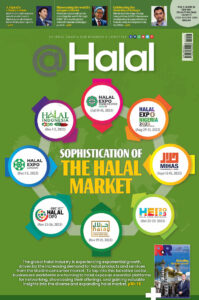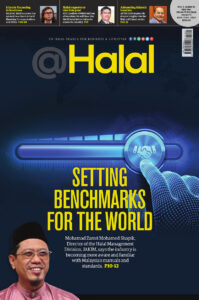The International Conference and Exhibition on World Cultures 2023 Kuala Lumpur to embrace global diversity and highlight sustainability in tourism
Like a blossoming flower in a vibrant garden, culture adds beauty and richness to the human experience. Recognising its significance, Malaysia will host the International Conference and Exhibition on World Cultures 2023 (ICWC ‘23), positioning itself as a cultural hub and championing the preservation of this precious essence of human existence.
Organised by UDS Media Sdn Bhd and supported by the Ministry of Tourism, Arts and Culture Malaysia (MOTAC), ICWC ‘23 is on Sept 7-10, 2023, at the MATRADE Exhibition and Convention Centre, Kuala Lumpur.
“We believe Malaysia has much to offer as a cultural hub. As a multi-ethnic and multi-religious country, Malaysia showcases a wide and varied diversity of cultures. The beauty of Malaysian society lies in the mutual respect and enjoyment of each other’s cultures through cultural celebrations. For instance, Malays may visit a Chinese household to experience Chinese traditions, and vice versa,” said Azmi Mustapha, President of ICWC.
“Culture serves as the central theme of ICWC. When we talk about world cultures, we aim to gather countries from all over the globe to promote and share their cultures at the exhibition. We have targeted more than 50 countries to showcase their cultures. Moreover, these countries will also actively contribute to activities and programmes such as cultural dances, fashion shows, the Kebaya competition, cooking competitions, and more.”
He said the objective was to display various cultures and foster mutual learning and understanding. The essence of the event lies in humanity coming together in an all-inclusive setting where every culture is valued and no culture is left out.
LEARNING FROM EACH OTHER
Through ICWC, a range of segments are organised, encompassing conferences, keynote speeches delivered by renowned speakers, panel discussions, and special feature presentations. While workshops, keynotes, and panel discussions are standard components of similar events, Azmi said the special feature presentation stood out as a distinct element.
The unique feature presentation offers a platform for invited individuals to share their insights, including cultural festival and event organisers and community-based tourism representatives, such as those involved in Thaipusam.
“Let’s take Thaipusam, for example. It initially started as a small religious programme, but now it attracts over one million visitors. How did it become like that? The answer lies in the preservation of Thaipusam as a festival and tradition. We recognise it as a major cultural heritage in Malaysia,” Azmi elaborated.
Allotted a 20-minute time slot, these selected individuals will enlighten attendees and a broader audience about their respective events, discussing their festivals’ origins, growth, and impact. This exchange of knowledge and understanding provides valuable insights for attendees, including organisers and cultural enthusiasts, and fosters the development of culture as a tourism asset.
“For the exhibition part, when participants come, it’s not just about cultural shows; it also involves business people. Culture encompasses various areas. Travel agents from other countries can visit Malaysia to explore travel agencies that promote or try to introduce new tourism products. From there, they can learn from each other, and that will create business and commerce,” Azmi shared.
He mentioned that unique Malaysian foods such as roti canai had the potential to capture the interest of chefs worldwide. These chefs might introduce these delightful dishes to their restaurants in countries like South America or Spain. Azmi further highlighted that the film industry operated similarly. Film producers, for example, may visit a place to understand the show’s essence and explore the prospect of integrating elements from specific locations into their documentaries.
PROMOTING ESG AND MUSLIM-FRIENDLY TOURISM
“ICWC also aims to serve as a platform for people to discuss ESG – environmental, social, and governance. This aspect is of utmost importance in the context of cultural tourism. We must prioritise environmental friendliness and sustainability while the government simultaneously strives to promote and regulate the industry, particularly concerning cultural sites,” Azmi added.
Touching on Muslim-friendly tourism, he emphasised the attendance of hotel operators from different countries at ICWC to promote their offerings. These operators, when visiting Malaysia, may select Muslim-friendly accommodations. Their experience may prompt them to consider the significance of catering to this particular segment and acknowledge the potential opportunities it presents. Consequently, Muslim-friendly tourism and hospitality are indirectly promoted to the ICWC participants.
“These attendees will gain valuable insights not only within the premises of ICWC but also from outside ICWC,” said Azmi.
He pointed out that Muslim-friendly tourism also included the aspect of Muslim women-friendly tourism, indicating that they are closely connected. Azmi emphasised the importance of Malaysia being welcoming and accommodating to Muslim women and prioritising creating an environment that supports and promotes friendly tourism towards women in general.








